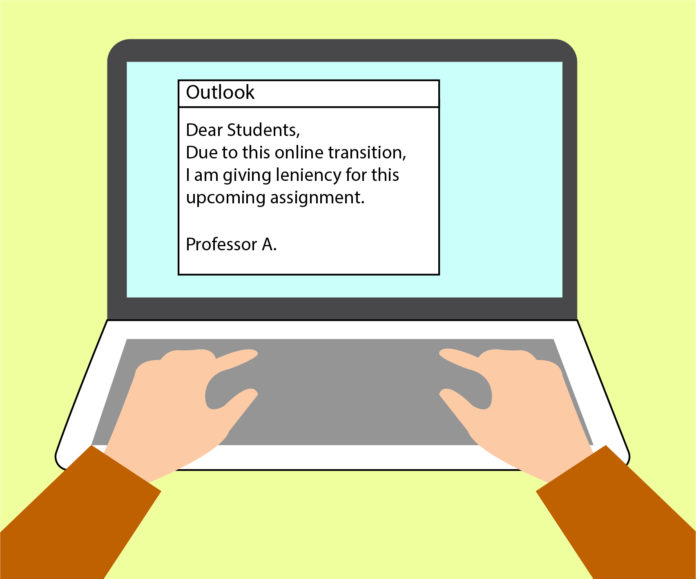After the cancellation of in-person classes last month, Baylor President Dr. Linda Livingstone urged grace and understanding. The sudden transition to online classes halfway through a semester is, after all, unprecedented, and it promised to be a learning experience for student and instructor alike.
Everyone has had to find ways to adapt to this strange new normal — which is why one online teaching method seems so unusual. Some professors still require assignments be completed in narrow windows during what would be normal class time, even when not requiring students to meet as a class. Strict assignment times put an undue amount of stress on the students who are already forced to adjust to a difficult situation.
The natural defense of this is that keeping such a tight leash on assignment availability deters cheating, which is true. It would be hard for a group of dishonest students to have a guinea pig take a quiz and report back answers when said quiz is only available for 15 minutes. Nevertheless, many professors already make use of tools to quash cheating whenever possible.
Within the past week, members of the editorial board have had to record themselves with a webcam, use Lockdown Browser and find a friend to proctor an exam in-person. Even Canvas has usage analytics. At some point the diminishing returns of limited availability can’t justify the inconvenience to those involved.
This inconvenience is amplified for students outside the Central Time Zone. What would normally be a 9 a.m. class is now suddenly a 7 a.m. for a student in California. The east coast gets off comparatively easy by gaining an hour, but it’s still an adjustment that has to be made. Any international students who returned to their home countries have an even more drastic adjustment to make.
Reduced availability also means any technical problem could completely derail a quiz or a test. Not much can go wrong with a standard paper-and-pencil quiz, but technology introduces infinitely more variables. Internet outages, dead batteries, computer crashes or rogue updates could all spell disaster in such a tightly regimented system.
A happy medium can exist. Limiting the amount of time a student can spend on an assignment is one way to deter cheating while still leaving some wiggle room. The aforementioned 15-minute quiz is not at all unreasonable when there’s a little more choice in when to take it. Requiring anti-cheating tools like Lockdown Browser is another potential remedy.
Switching to online classes has been an adjustment for the entire Baylor community and it was never going to be a perfect system immediately. If the end goal is maintaining a healthy educational environment, then returning a little of that extra grace in these unprecedented times would go a long way.
The university has already made great strides to make accommodations for students — from adopting a pass/fail policy to granting certain refunds. Professors have the freedom to enforce their own individual policies. More flexibility in exam times could be a good place to start.






